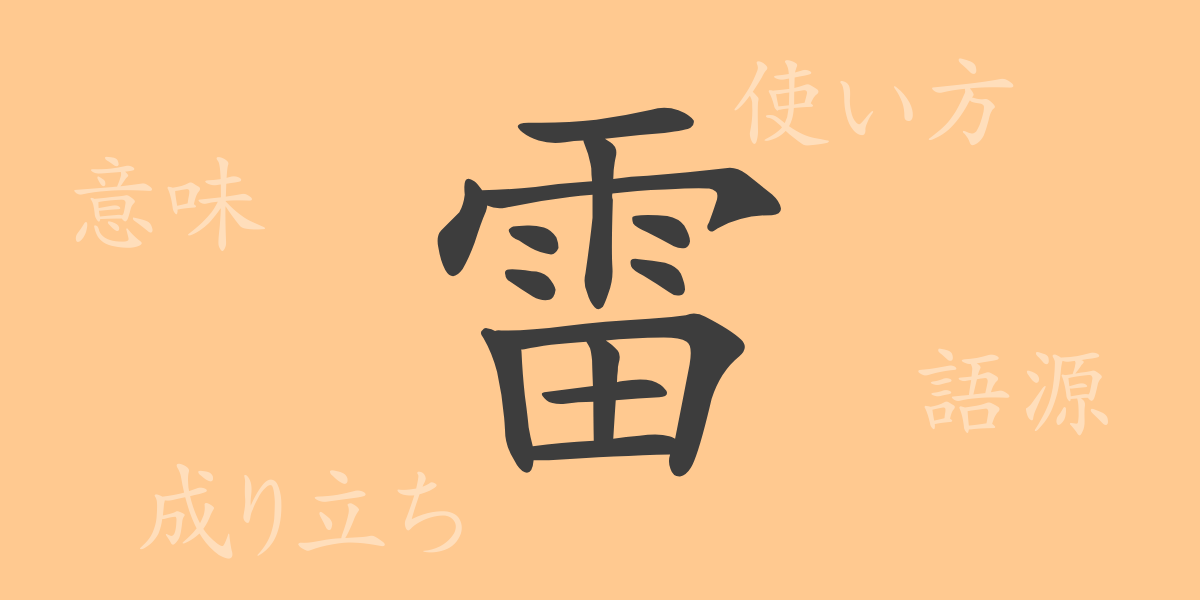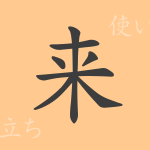With a light that cuts through the sky, a thunderous roar echoes. This overwhelming phenomenon created by the power of nature is “雷” (kaminari). Since ancient times, people have been both awed and fascinated by this grand force of nature. In this article, we focus on the common Japanese kanji “雷” (kaminari), explaining its origins, meanings, usage, readings, and even idioms and phrases related to 雷 (kaminari) in detail.
Origins of 雷 (kaminari)
The character “雷” (kaminari) is one of the ancient kanji found in old Chinese manuscripts. The formation of this character combines the radical for “rain” (雨) and the character for a tool made of wood used to till fields (田). In ancient China, 雷 (kaminari) was recognized as an important natural phenomenon that brought rain, essential for agriculture, which is reflected in the formation of this kanji.
Meanings and Usage of 雷 (kaminari)
“雷” (kaminari) refers to the electrical phenomenon that occurs in the sky, as well as the thunderous sound that accompanies it. Figuratively, it is also used to describe something very surprising or a sudden event. For example, the expression “雷に打たれたような顔をする” (kaminari ni utareta you na kao wo suru) describes a person looking extremely surprised.
Readings, Stroke Count, and Radical of 雷 (kaminari)
The character “雷” (kaminari) has the following features:
- Readings: On’yomi (音読み) is “ライ” (rai), Kun’yomi (訓読み) is “かみなり” (kaminari)
- Stroke Count: 13 strokes
- Radical: 雨部 (あめへん, amehen)
Idioms, Phrases, and Proverbs Using 雷 (kaminari) and Their Meanings
The Japanese language includes many idioms, phrases, and proverbs that incorporate “雷” (kaminari). Here are some examples:
- 雷鳴 (らいめい, raimei): The sound of thunder.
- 雷電 (らいでん, raiden): Thunder and lightning.
- 雷神 (らいじん, raijin): The god who controls thunder.
- 雷撃 (らいげき, raigeki): A fierce attack like lightning.
- 雷舞 (らいぶ, raibu): Moving around violently like thunder.
These idioms and phrases are used to express the power and suddenness associated with 雷 (kaminari).
Summary of 雷 (kaminari)
“雷” (kaminari) is not just a natural phenomenon but has also been expressed in various forms in the Japanese language. Its strong impression is deeply etched into people’s hearts through words. While the thunderous sound of 雷 (kaminari) can evoke fear, it also brings rain, blessing crops, and is accepted as an indispensable phenomenon for life. This multifaceted existence of “雷” (kaminari) continues to have a profound impact on our culture and language.
“`

























